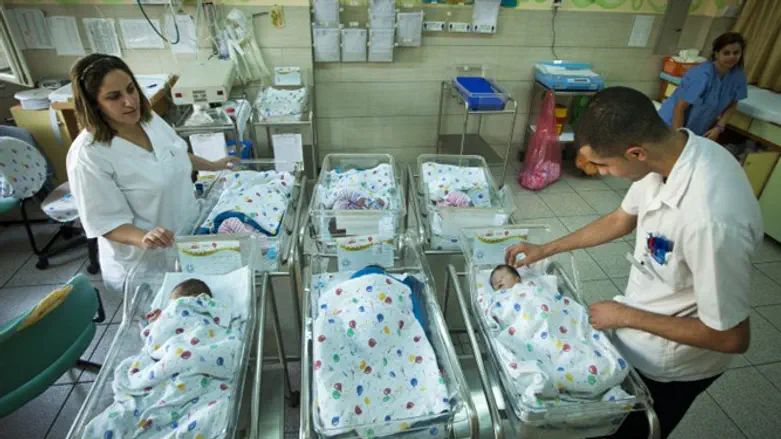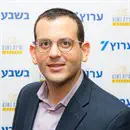
Israeli press covered the panel, "A Health System from the Movies," which was held in Eilat. Participating in the panel were Dr. Eldar Berkowitz, head of Eilat's Yoseftal Hospital and presiding over medicine in the entire Eilat region; Eyal Maluban, from the Committee of the Second Authority for Television and Radio; Hila Elroi from Channel 10; Yoav Even from Channel 2; Vered Kwital, spokesperson for Beilinson Hospital in Petah Tikva; and Michal Winshel-Sheinman, spokesperson for Wolfson Hospital in Holon. Niv Gilboa led the panel.
Dikla Aharon Shpern, a health writer for Kol Israel radio, spoke about the issue of separating Jewish and Arab new mothers in maternity wards.
"I've received a lot of responses to that article, people tell me that for so many years, we've been separating the new mothers, and that it's good for everyone. It's a hot topic because everyone is telling us, all the hospitals are telling us, that there's no separation at all, when in reality there is. It's changed since my article was published, but it still happens. During one of the Knesset discussions, a senior management figure from Hadassah explained that the hospital tries to honor the requests of those who choose to give birth with them. I asked her, 'So if someone asks not to be placed in the same room as an Ethiopian, will you honor that?' And she said yes," Shpern said.
Yoav Even, a health writer for Channel 2, responded to Shpern saying, "What surprised me is that this phenomenon exists within the hospital staff, as well. Some of them tried to explain to me, 'off record' why it's okay to separate the patients."
Wolfson Hospital spokesperson Michal Winshel-Sheinman said, "We don't separate at all. It's clearly visible. I walk around the wards and I see it with my own eyes. It's all done with love and brotherliness, no one complains and we're really proud of it. The infrastructure is what bothers me. We're about to renovate the maternity ward."
She also spoke about the issue of separating Jewish and Arab mothers, attempting to show both sides of the issue.
"I understand both sides, but it's all about nuances: When I give birth, it's hard for me to deal with Arab partying and loud events, because I want my peace and quiet," Sheinman explained. The Arab custom is to bring lots of visitors and have parties in the mother's room and separating the women when possible prevents complaints from Jewish mothers who want quiet.
Channel 10 health analyst Hila Elroi said, "There's a huge problem, because you can't differentiate between money and health. The State of Israel doesn't fund the public health system appropriately. It's not right to let a woman choose who should share her room in the maternity ward. That would never happen in any other ward. This ward receives money from the Israel's National Insurance Institute (Bituach Leumi). The moment the State begins to fund hospitals the way it should, and starts thinking of us as a source of income instead of as an expense, the quality of care will rise. All the towers that were built on hospital campuses, were built by donors. Without them, the quality of care in Israeli hospitals would be a lot worse."
Dr. Eldar Berkowitz, head of Yoseftal Hospital and the Eilat Region, disagreed, "Our maternity ward is very active, with about 900 births a year. Our ward is small, and there are about 17 new mothers at once. When I was in charge of the maternity ward, I never saw a single complaint ignored. Births are funded, and they are funded very well and the amount of money Bituach Leumi gives is appropriate. The price and the service are well matched. We don't look only at the regular births, at the healthy women with easy births. There are complicated births and cesarean sections which cost more but we still receive the same amount for them. We don't look at those births as a loss of income, we look at all births as a group."
